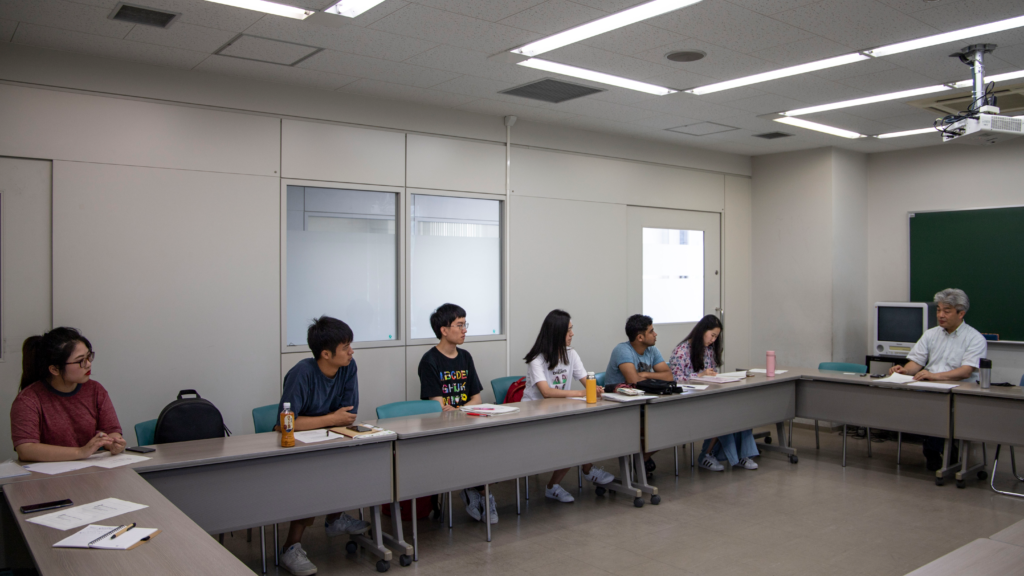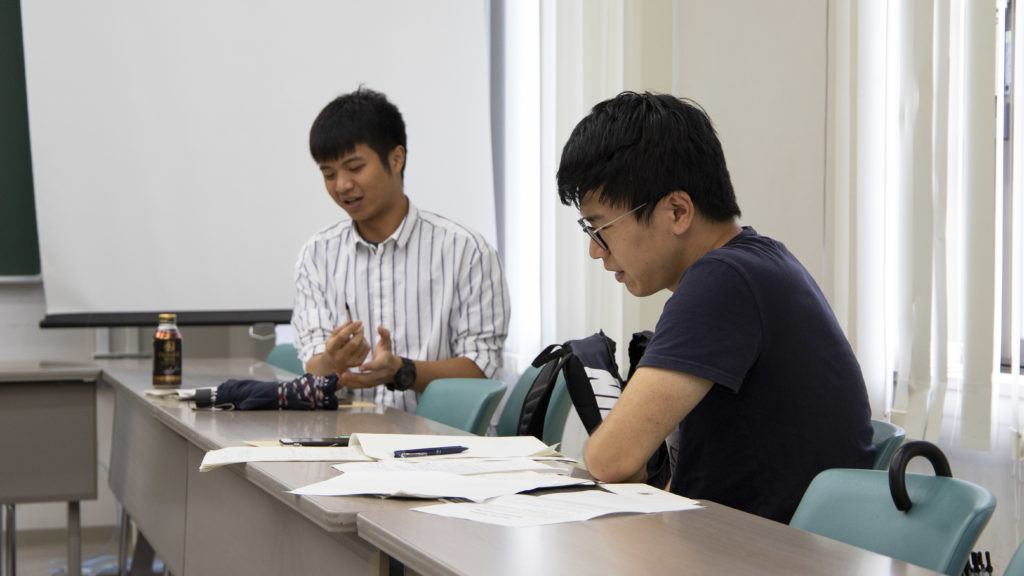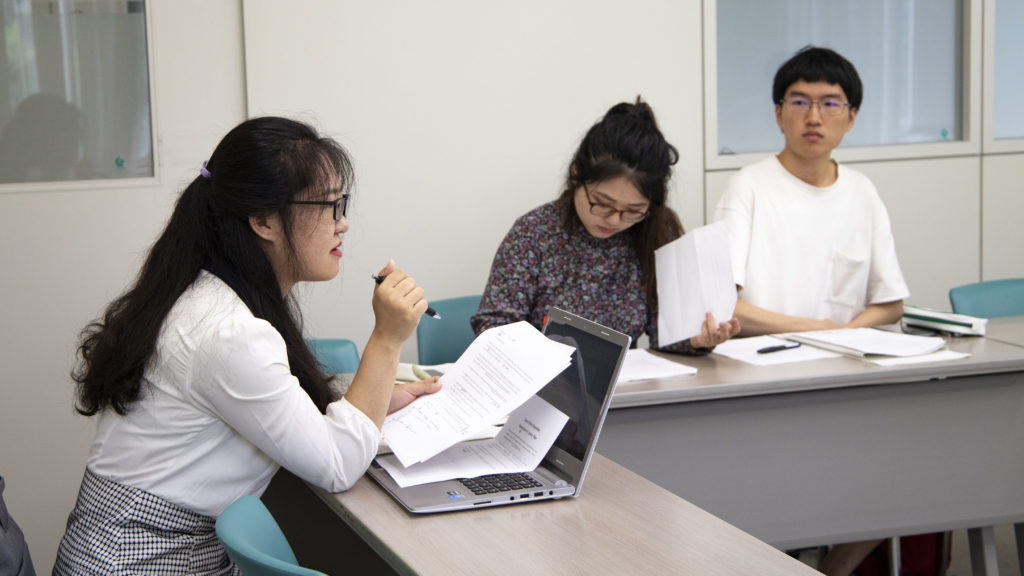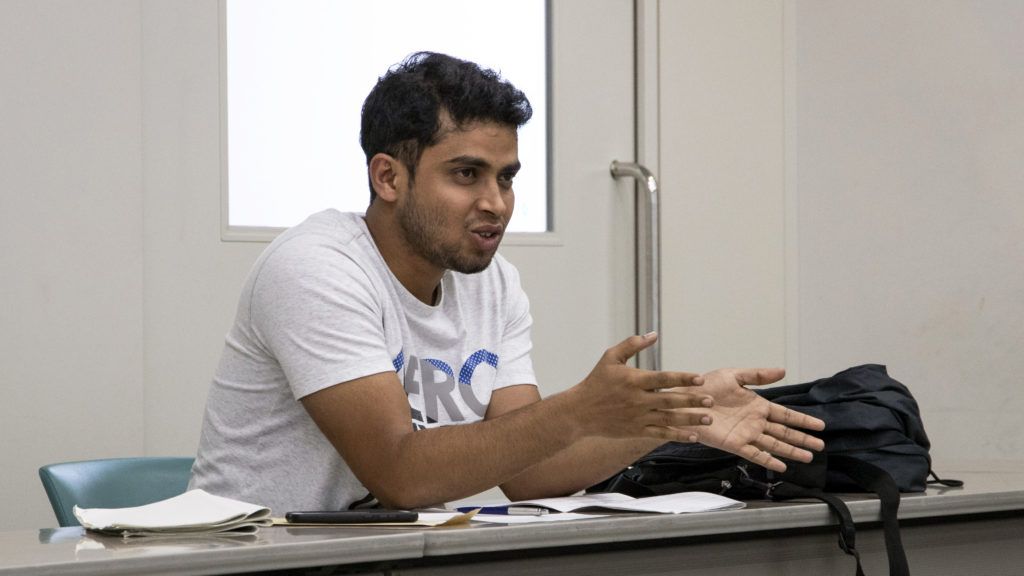HSI Report: Space Policy of the World and Japan
University News | August 23, 2019
The Hokkaido Summer Institute course “Space policy of the World and Japan” provides university students from engineering and political science backgrounds the opportunity to analyze space policy and learn about the complications involved in developing policies managing its activities.
The course ran from August 5th to the 9th and was open to any Master’s and Ph.D. student. Hokkaido University students and international students from China and India discussed policy-making and learned about the space policies of countries in Asia, Europe, and North America. According to the course convener, Professor Kazuto Suzuki, it is also the only university-level course in Japan to focus on space policy.
Master’s student Chen Shi from the University of the Chinese Academy of Sciences commented on his own interest in studying space policy, “I think the future of humankind is in space. And with more and more private companies investing, like producing joint satellites, how to make space policies is a big question we need to answer.”
Since space lacks territorial boundaries and its policies are made differently depending on a country’s national interests and global interests, the students were challenged to think critically about why countries invest in space and how these factors affect policy-making decisions worldwide.
Professor Suzuki emphasized how vital understanding the topic of space policy has become: “We live in a world where we cannot fully function without space, without GPS or satellites. Growing international tensions related to socio-economic life and security make space policy all the more important to learn.”
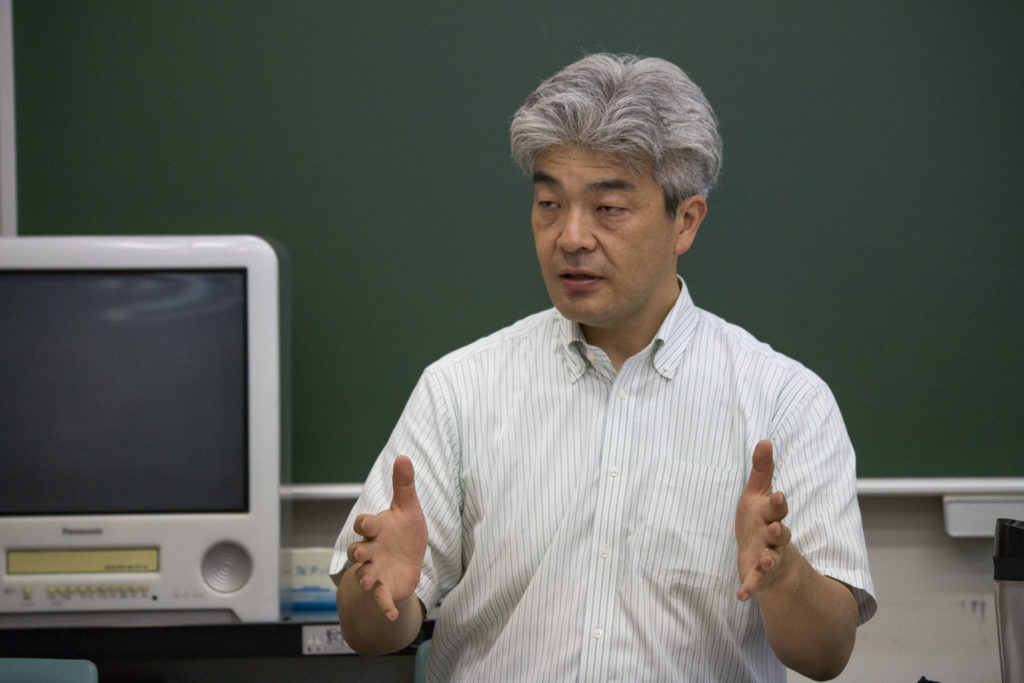
Professor Kazuto Suzuki, Faculty of Public Policy, explaining current international cooperations in space in the private and public sectors.
For the last day of the course, the students simulated an international negotiation on the topic of astro-mining, or the farming of space resources. Each student assumed the role of a different (fictional) country with its own agenda. By the end of the day, they needed to all successfully agree on a policy suiting their own objectives.
After providing their opening statements, the students were given an open floor to discuss with their fellow classmates in whatever format they choose, as a whole group, selective groups or even secretively. Conflicting interests included how to treat intellectual property and autonomous rights, the sharing of profits and knowledge, and regulating activities. They then came together for a final formal debate to finalize their policy.
“Especially for space, but also for any policy-making decisions or science related issues, it is not easy to come to a consensus and set international agreements due to differences in interests and perceptions,” Professor Suzuki explained. “For example, it may seem obvious that space is for humankind, but there are a lot of political aspects and national interests which make it difficult for a consensus to be made among multiple countries.”
Although only one week long, the course provided a unique platform for the students to understand the policy aspects of space and to analyze issues from various angles and perspectives. It also helped them improve their debating and conflict resolution skills.
Written by Katrina-Kay Alaimo, Ph.D.


